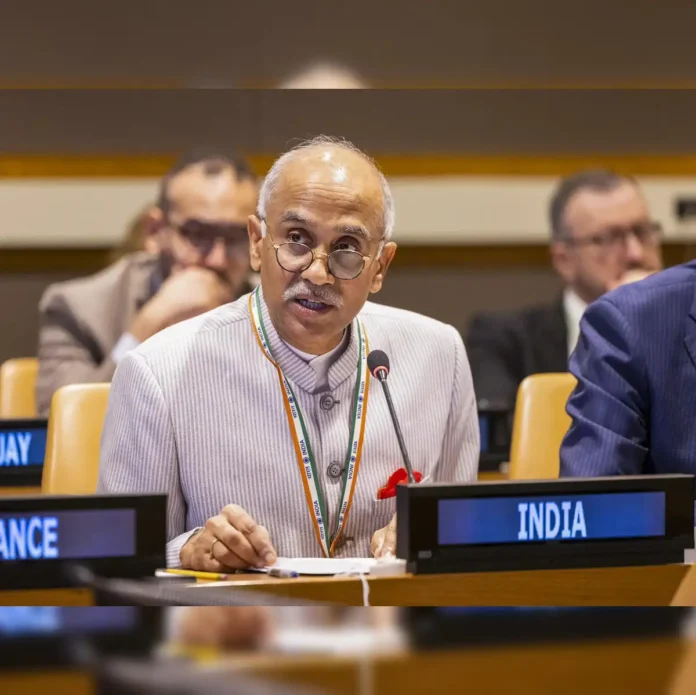India has urged the global community to take decisive actions to prevent Pakistan-based terror groups Lashkar-e-Tayyiba (LeT) and Jaish-e-Mohammed (JeM) from exploiting Afghan territory for their operations. The call came during a UN Security Council meeting held on Wednesday, where India stressed the need for coordinated international efforts against these UN-designated terrorist entities.
Who made the call? India’s Permanent Representative to the UN, Ambassador Parvathaneni Harish, led the discussion. He highlighted the importance of global cooperation to address the mounting security concerns in Afghanistan.
What was discussed? Ambassador Harish emphasized that both LeT and JeM, along with their affiliates, must be restricted from utilizing Afghan land for terrorist activities. This assertion notably references concerns regarding Pakistan’s facilitation of these groups.
Addressing Security in Afghanistan
When discussing Afghanistan’s future, Harish remarked, “The international community must work together to ensure that designated entities by the UN Security Council, including ISIL and Al Qaeda, do not thrive in this conflict-ridden region.” His statement underscores a strong commitment from India towards the stability of Afghanistan, emphasizing the need for a united front.
He stated that India monitors the evolving security situation closely and is committed to promoting peace and development in Afghanistan. Harish referred to India and Afghanistan’s long-standing relationship, hinting at a shared cultural and civilizational bond that places India’s interests at the forefront of Afghan peace initiatives.
The Importance of Humanitarian Efforts
India’s commitment extends beyond security concerns. In light of recent natural disasters, such as Afghanistan’s devastating earthquake, Harish noted, “It is time for compassion and support for millions of Afghans suffering from poverty and hunger.” India was one of the first nations to provide humanitarian assistance, offering essentials like 1,000 family tents and 15 tonnes of food aid.
In total, India plans to send over 21 tonnes of additional relief supplies, including medicines and hygiene kits, crucial for thousands affected by the earthquake. Furthermore, aid has been provided for drug rehabilitation programs aimed at helping Afghan women.
Reconstruction and Development Initiatives
Ambassador Harish’s statements highlight that India’s humanitarian support commenced alongside the Taliban’s takeover in August 2021, where it delivered substantial amounts of food and medical supplies to those in dire need.
According to Harish, “India has contributed to over 500 development projects in Afghanistan,” demonstrating a sustained commitment to the country’s reconstruction. This extensive support is essential for fostering stability and helping rebuild Afghanistan’s war-ravaged infrastructure.
Collaboration for a Better Future
Harish also mentioned discussions he had with Afghanistan’s Acting Foreign Minister, Amir Khan Muttaqi, emphasizing the importance of continuous dialogue. He stated, “We actively engage with all relevant parties to promote peace, stability, and development.”
This ongoing engagement reflects India’s broader strategy of maintaining alliances that can facilitate a stable and prosperous future for Afghanistan and its people. Harish concluded with a strong message of India’s determination, stating, “Our support for the Afghan people is non-negotiable.”
India’s actionable plans insist on a combined approach of both assistance and accountability. Harish argued that a solely punitive approach would not effectively address Afghanistan’s complex post-conflict situation.
The need for a renewed focus on collaborative efforts and sophisticated strategies remains critical. The international community must pay attention to the evolving landscape in Afghanistan, prioritizing both security and humanitarian aid for lasting peace.




